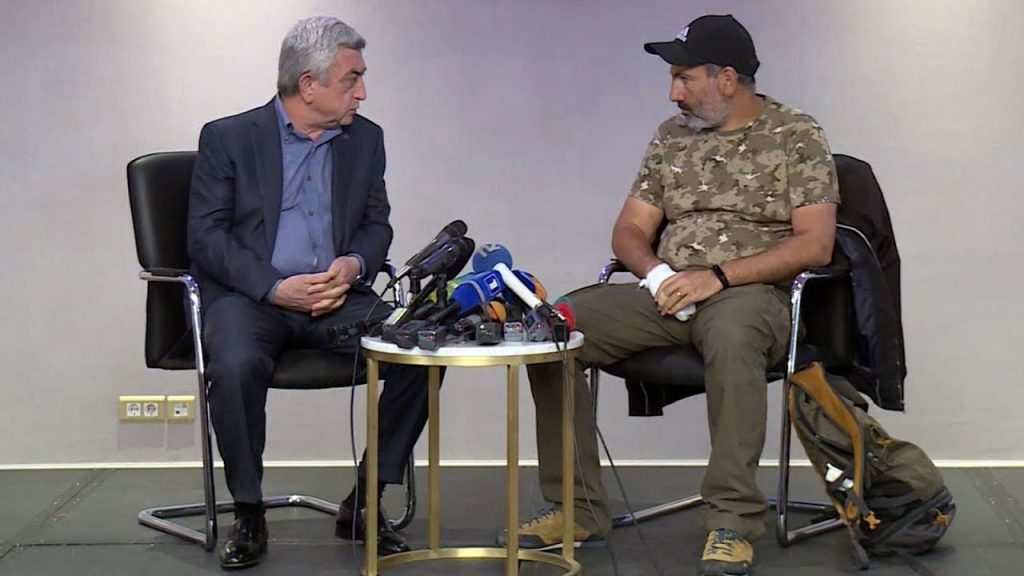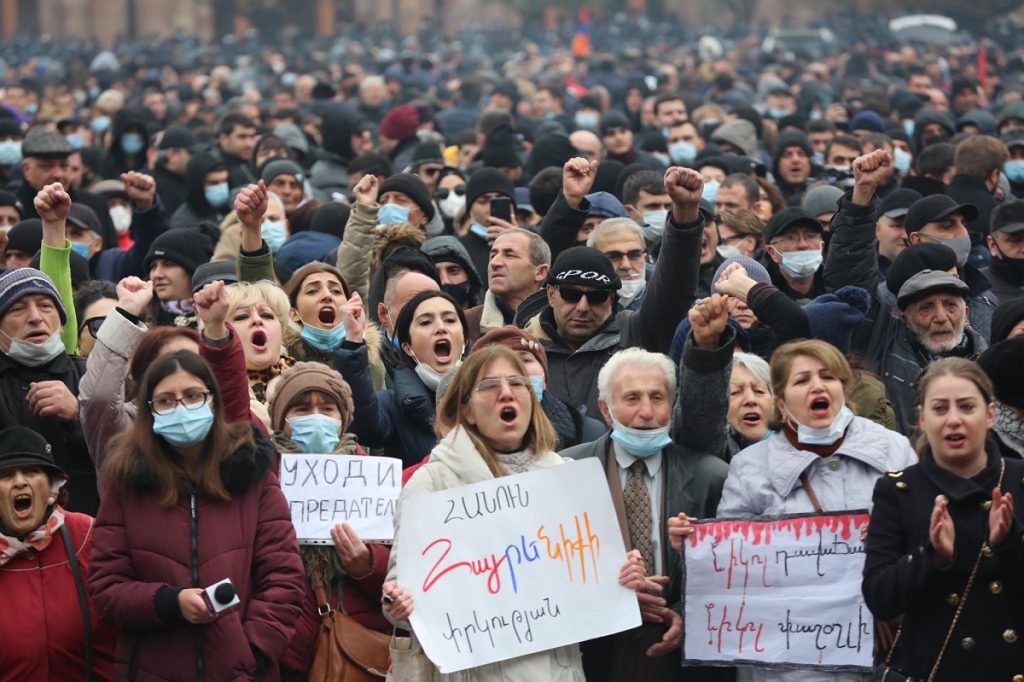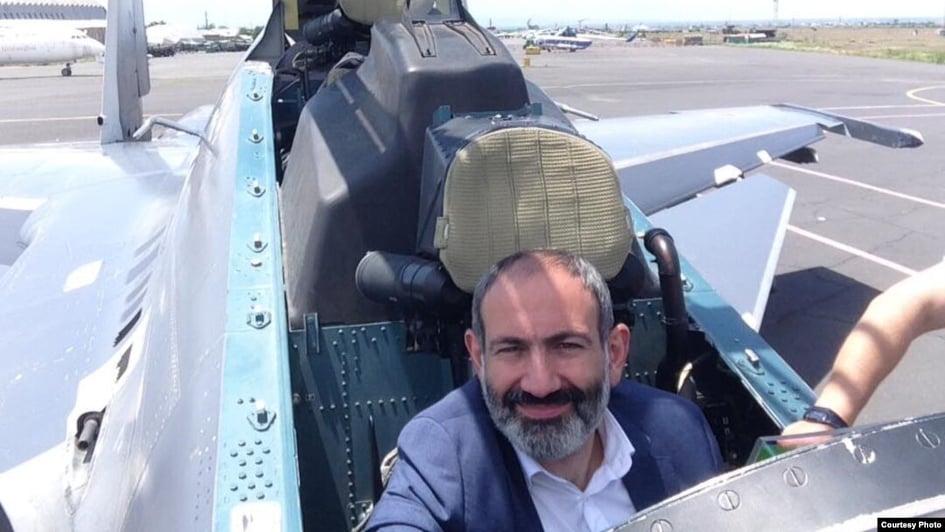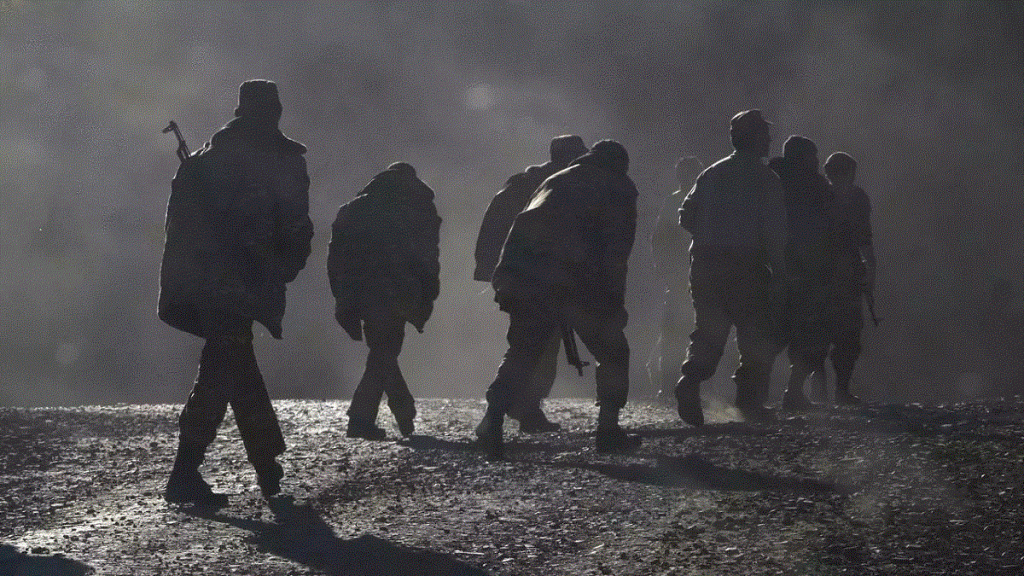Myths and realities of Armenia's defeat in the second Karabakh war
Long after the end of hostilities in Nagorno-Karabakh, the heated discussions of the reasons for the defeat of Armenia in the second Karabakh war have not ceased. One of the main questions is whether the political leadership of Armenia could have committed treason.
If at the initial stage it was mostly gossip of ill-wishers and political opponents, over time, conflicting information began to appear, leading to more questions and doubts arising.
In particular, Armenian society is asking the following questions:
- Did Armenia use Russian Iskanders?
- If it did, how effective were they?
- Why did Yerevan buy SU-30 SM fighters without missiles?
- Was the order to capture the Lele Tepe heights at any cost given during the war?
- Is it possible that the leadership of Azerbaijan offered Armenia a specific amount of money in return for Karabakh, as was the case with the former President of Armenia Serzh Sargsyan?
What is known now on all these issues and what the experts think about it.
- Scandal continues in Armenia over Aliyev’s proposed $5 bln ‘Karabakh buyout’
- ‘Sargsyan’s Armenia’ vs ‘Pashinyan’s Armenia’ – which is better?
- ‘We didn’t prepare for 5th generation war in time’ – Armenian ex-MoD
The Pashinyan-Sargsyan confrontation. What happened before the war?
Now, when there is practically no negotiation process on Nagorno-Karabakh, and the unrecognized republic itself is trying to survive the consequences of the war, the previous and the current leaders of Armenia are fiercely arguing and blaming each other for the failure in negotiations.
Nikol Pashinyan has repeatedly stated that over the past 20 years, and specifically from 2018 onwards, all negotiations boiled down to the issue of returning Nagorno-Karabakh to Azerbaijan:
“In fact, the negotiation process reached the point, looking at which, I realized that the only prospect for the future was the returning of the Nagorno-Karabakh region to Azerbaijan. And yet we are being blamed for the fact that the war has started, or for the fact that we, supposedly, did not use the opportunities for a peaceful settlement”.

Of course, the office of former Armenian President Serzh Sargsyan denies such a narrative of events and, in turn, blames the current leadership. Igor Popov, the former co-chair of the OSCE Minsk Group from Russia, also refutes Pashinyan’s words:
“The assertions that Russia just offered to return seven regions [surrounding Nagorno-Karabakh which Armenia used as a defense zone] and to forget about the status of [Nagorno-Karabakh], are not true”.
After coming to power, Nikol Pashinyan said that he would start the negotiation process from scratch. He met several times with the President of Azerbaijan, and the foreign ministers of the two countries also held meetings in the presence of the OSCE Minsk Group co-chairs.
However, Pashinyan argued that negotiations on a settlement have not yet begun, and the process of developing the conditions of a settlement is underway.
At the same time, the prime minister tried to promote the importance of the participation of representatives of Nagorno-Karabakh in the negotiation process, which Azerbaijan categorically rejected.
Political scientist Stepan Grigoryan believes that Pashinyan is trying to justify himself for the results of the war:
“Nikol Pashinyan says that Azerbaijan secured the support of the international community. But, excuse me, 2.5 years [during which Pashinyan was in power] is not a short period, especially not for a government that came to power through a revolution, thus drawing the world’s attention to itself. The world would gladly listen to the new government, but since it gathered people who do not know the Karabakh problem well enough, it failed to make the appropriate steps”.
Arman Grigoryan, professor of the Likhai University in the United States also doubts the sincerity of Pashinyan’s words and believes that the prime minister is manipulating public opinion:
“We can all open and read these documents, they clearly state the guarantees that Armenia will receive if it reaches an agreement through negotiations. Even if in the end we got what we ended up with after the war and even if we lost Shushi and Hadrut as a result of this negotiated agreement, which would not have happened, it still would not justify the war, because without it we would have saved many lives”.
Did Pashinyan fail the negotiation process and could he have prevented the war? It is difficult to say with certainty, but the analysis of experts and the statements of people connected to the negotiation process indicate that, at the very least, Pashinyan did nothing to try and find common ground.

Order to recapture the Lele Tepe heights. What happened during the war?
Armenian society is still discussing a scandalous episode that could have possibly involved Nikol Pashinyan – the story around the strategically important Lele Tepe heights.
It was lost during the so-called “April War” in 2016 when the Armenian forces lost control over a total of 800 hectares of the territory.
Unofficial sources claim that Pashinyan gave an order to recapture Lele-Tepe at any cost so that he could publically announce that he was returning the territories lost under the previous government.
The same sources report that as a result of an unsuccessful military operation during the second Karabakh war, several military units experienced significant losses of their combat capability and were unable to recover.
To this day, there are still no official comments on the matter.
Did the Iskanders fire?
Experts have always agreed unanimously that Azerbaijan had a quantitative superiority over Armenia in terms of military equipment. However, Yerevan had weapons in its arsenal that Baku did not have, weapons that could have potentially overturned the outcome of the second Karabakh war. These are, first of all, the Russian Iskander tactical missile systems.
As of 2020, Armenia received approximately 4 to 8 units of Iskander-E OTRK, the exact number is unknown. It was believed that the Iskander missiles would serve as the main deterrent factor for the potential enemy. The missiles could easily fly all the way to Baku, and the radius of destruction is what made this missile system into a dangerous, deadly weapon in a potential war.
During the 44 days of armed conflict, people back in Armenia were wondering why the General Staff did not fire Iskanders. Some were even saying that Yerevan cannot fire missiles without Moscow’s permission. However, the “soap opera” around the Iskander missiles truly reached its peak after the war was over.
First, the former Head of the Military Control Service Movses Hakobyan stated that the Iskanders were launched in the direction of Shushi when the city was already lost. Then the information about the use of missiles was actually confirmed by the prime minister of the country. Reacting to the comment of ex-President Serzh Sargsyan, who said that it was crucial to fire Iskander missiles on the third day of the war, Pashinyan said:
“I think he ought to have answers to many questions, instead of asking questions the answers to which he already knows. Or maybe he will be able to answer why the Iskander missiles didn’t explode at all or only exploded by 10%?”
Moscow did not like Pashinyan’s words and responded by saying that Iskanders were not used during the 44-day war. Russia did not change its original statement even after the remains of the OTRK were put on public display in Baku. Pashinyan’s office, on the other hand, rushed to agree with Russian colleagues and claimed in its official statement that the prime minister was allegedly misled.
Military expert Karen Hovhannisyan believes that a thorough examination should be carried out in order to determine whether the fragments displayed in Azerbaijan belong to Iskander, however, Azerbaijan failed to do so:
“In my opinion, there was a certain amount of pressure on Azerbaijan from Russia. In turn, Azerbaijan, at the instigation of Turkey, is trying to arrange a similar staging in order to exert counter-pressure on Russia for the purpose of reaching a compromise on some issues”.
It is clear that each side will stand by its own version of events, and in the near future it will not be possible to determine whether Iskander was ever used during the second Karabakh war.
Why weren’t SU-30 SM fighters used?
Another advantage of Armenia in terms of the armament was the four SU-30 SM fighters of the 4 ++ generation. A report from the frontline indicated that Armenia did not use them during the active stages of the armed conflict and only the SU-25 attacker aircrafts were spotted in the sky. The mystery was revealed after the war when PM Pashinyan said that they did not have time to buy missiles for the SU-30 SMs.

The prime minister did not specify how and why this was even possible, although he did not hesitate to lay the blame on the previous government:
“We are accused of not purchasing enough weapons, and of buying planes. Yes, we bought planes, and, yes, we did not have time to buy missiles before the war broke out. But you [previous government] would have bought planes, and we would have bought missiles”.
Before the war, Pashinyan made some statements about the combat flights of fighters with the use of missiles. However, later he found an explanation for this discrepancy:
“There are no contradictions in my two statements. SU-30 SM aircrafts were delivered to Armenia in May 2020, and during training flights, missiles that have already been stored in the arsenal of Armenia were used. During the war, the decision on whether or not to use these aircrafts was made taking into account the extent to which the available weapons would allow the aircrafts to perform the assigned tasks.
Unfortunately, during the war, we did not have time to purchase the necessary accessories, missiles, which would allow us to use the SU aircraft at full capacity”.
Russian military expert Alexander Khramchikhin calls the purchase of this type of fighters without the corresponding missiles unprecedented:
“As far as I know, Armenia is the first country that bought aircraft without missiles. In the future, the significance of these devices will depend on what kind of nomenclature Yerevan wants and can get from Moscow. But it should be noted that Baku does not have any aircarft of such quality.”
The question is about what Moscow will be ready to sell and whether it will be ready to sell anything at all. Earlier, the former head of the military control service Movses Hakobyan stated that Russia does not sell air-to-air missiles with a range of 130 km to other countries.
Armenia still does not specify when it will be able to receive the corresponding missiles from Russia, but, at the same time, it wants to increase the number of SU-30 SMs up to 12.
How much does Karabakh cost?
After the hostilities in Nagorno-Karabakh in 2020, a recording of a personal conversation between ex-President of Armenia Serzh Sargsyan and his Belarusian colleague was leaked to the news network. In the recording, it is revealed that Lukashenko passed on President of Azerbaijan Ilham Aliyev’s proposal to Sargsyan to cede areas around the unrecognized Nagorno-Karabakh Republic to Azerbaijan for $ 5 billion. In return, Sargsyan said that he was ready to offer $ 6 billion for Aliyev to give up Azerbaijan’s claims to the Nagorno-Karabakh region.
Back then, it became known that a specific amount of money was offered for Nagorno-Karabakh. The main question now is whether it remained a subject of bargaining even after Nikol Pashinyan came to power. Was the latter offered billions of dollars to give up the land?
The Armenian press is circulating the information around the fact that a few months after coming to power, Nikol Pashinyan delegated his now-former adviser Arsen Kharatyan to secret negotiations with the Azerbaijani side.
The information about secret negotiations was later confirmed by the former head of the National Security Service of Armenia Artur Vanetsyan who said that in Dubai he met with a representative of Aliyev who handed him a sealed envelope for Pashinyan. Vanetsyan added that he reported on this during the meeting of the country’s Security Council. The content of the “secret” message is unknown, and to this day, officials have not commented on the matter.
All these stories turned into the dark pages of the second Karabakh war, and the need for a thorough investigation into the reasons behind Armenia’s defeat in the second Karabakh war is becoming more apparent. The opposition, along with a significant chunk of Armenian society, is confident that no such investigation will be carried out while Nikol Pashinyan is still in power. Meanwhile, the government announced the launching of reforms in the army and the intention to fully analyze the mistakes made during the war.



















